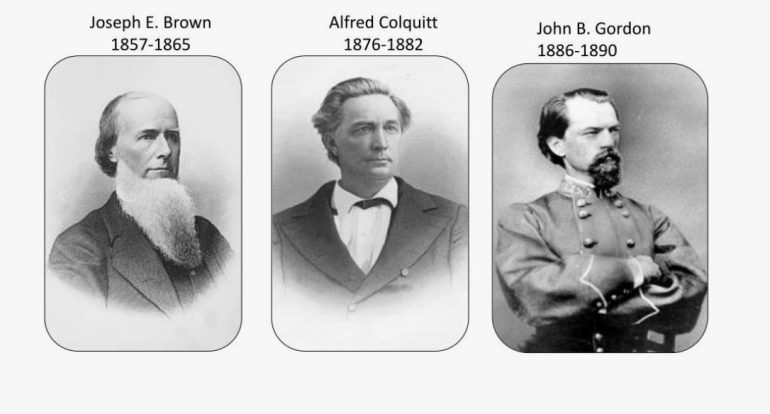
Southern Progress: Paths to Economic Growth
After the turbulent years of Reconstruction, Georgia’s future was shaped by leaders with distinct strategies. Three influential politicians, forming a famous political alliance, steered the region’s destiny. Each shaped their policies by personal background and local priorities. One primary question comes to mind: why did the Bourbon Triumvirate welcome Northern investment? The answer reveals a nuanced interplay between tradition and new economic forces—not only in Georgia, but across the South. Some believed external resources were essential for growth, others valued self-sufficiency. These competing attitudes defined the region’s course.
Historic Background: Two Economic Visions
Agrarian Legacy
Rooted deeply in plantation life, many Georgians cherished an agricultural identity. Plantations shaped traditions, labor systems, and social structures. Economic success meant fertile soil, a strong harvest, and close control over the land. Yet challenges mounted—crop prices declined, labor changed, and isolation threatened growth. Some saw the growing industrial North as competition, not opportunity.
Industrial Ambitions
New leaders argued that future prosperity required factories and infrastructure. The Bourbon Triumvirate understood that Northern investors held resources and technology that could transform the South. Business-minded politicians envisioned railroads, mills, and banks—built with outside money but fueling local progress. The region needed jobs, modern facilities, and fresh markets to thrive.
Motives: Investment Versus Independence
Seeking New Capital
- Factories required funding not available locally.
- Infrastructure improvements depended on outside expertise.
- New industries created opportunities for city development.
- The region could not compete without advanced machinery.
- Trade partnerships expanded local markets.
For industrialists, raising standards meant finding outside partners even if it risked some loss of autonomy. Northern companies brought fresh technology, international contacts, and financial stability.
Advocating Local Control
- Plantation owners favored traditional social order.
- Economic independence reinforced local pride.
- Distrust of outside influence ran deep.
- Past experiences shaped attitudes toward change.
- Stability was seen as best achieved by internal means.
Some leaders believed outside investment threatened regional character. For them, local solutions protected jobs, culture, and long-standing values.
Results: Divergent Impacts on Georgia
Positive Outcomes
The Bourbon Triumvirate Welcomed Northern Investment, leading to economic renewal. Railroads crisscrossed new towns, and new jobs appeared in unexpected places. Atlanta emerged as a center for commerce and innovation. Education improved as new industries fueled new schools and training facilities. The region’s reputation grew—businesses moved in, cities grew, and hope appeared.
Challenges Remained
Some believed too much change arrived too quickly. Rivalries persisted between new business leaders and old landowners. Economic gains did not always reach rural citizens. Tension grew over labor conditions and the balance of power. The push for external partnerships sometimes clashed with deeply held traditions. Communities needed time to adjust.
Attitudes: Old Versus New Leadership
Tradition Defenders
Not everyone supported the push for outside funding. Some preferred gradual change and wary negotiation. Stability for these leaders meant keeping familiar routines and structures in place.
Innovation Advocates
Others argued that success in a changing world depended on bold action. The Bourbon Triumvirate Welcomed Northern Investment again as a means to integrate Georgia into a broader economic network. They believed progress demanded new ideas, risk, and embracing the outside world.
Legacy: Comparing Visions for the South
Lasting Traditions
Social norms, local pride, and memory of the past still echo in Georgia’s communities. Farming remains central for many. Family ties and small towns hold great importance. Some believe that gradual, careful change keeps the region stable.
Evolving Pathways
The Bourbon Triumvirate Welcomed Northern Investment because fast development promised new horizons. Atlanta’s skyline and industrial legacy illustrate their influence. Factory whistles replaced field work for many Georgians. The impact of their decisions shaped generations, blending outside energy with southern roots.
The ongoing debate about economic progress and tradition in Georgia presents clear contrasts. While some leaders valued local heritage above all, others believed long-term growth depended on embracing outside help and fresh ideas. Over time, each vision has left its mark, creating a dynamic and adaptable society. Today, the question of how change should occur remains central in Georgia’s development. The Bourbon Triumvirate Welcomed Northern Investment, and their actions continue to influence business, politics, and daily life.
